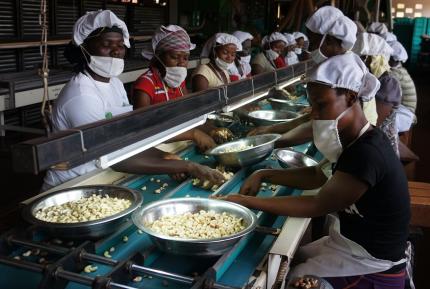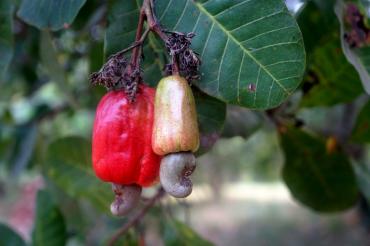ACA Seal to Facilitate Compliance with New US Food Safety Laws
International food safety regulations are beginning to require serious consideration by exporters of food to the United States. New regulations will have concrete impacts on cashew farmers, processors, and buyers, as the United States moves to enforce the new FDA Food Safety Modernization Act, the most expansive reform of food safety laws in over 70 years. On January 4, 2013 The US Food and Drug Administration (FDA) announced major proposed regulations of the FSMA, which was passed in January 2011 by President Barack Obama. They contain preventative controls that pertain to good manufacturing and agricultural practices, both of which are relevant to cashew production in Africa.
 The FDA regulates enforcement of the Food Safety Modernization Act
The FDA regulates enforcement of the Food Safety Modernization Act
In January 2013 at the Peanut and Treenut Processors Association (PTNPA) convention, Martin Hahn, legal counsel of the PTNPA and an expert on food and agriculture law, presented the proposed FSMA rules to members of the nut business. Hahn predicted that FSMA will be a primary priority for the nut industry in in the coming years.
“Foreign supplier verification is going to be one of the key pieces for your members,” said Hahn, speaking with the ACA in February. “It’s going to lay out in detail what kind of verification activities you have to have in place to be in compliance with FSMA,” he explained, while noting that the FDA has not yet released the proposal. He expects the rule will be proposed later this year, and if accepted would ultimately be enforceable in two years.
 Peelers at Mim Cashew, a Seal approved factory.
Peelers at Mim Cashew, a Seal approved factory.
The Foreign Supplier Verification Program (FSPVP) would have a direct effect on cashew importers, who will have to verify that imported food is produced in compliance with FDA safety standards. Although the FSMA has not yet released detailed plans, it is likely that a third party certification program will be enacted, which will approve third party auditors to confirm compliance of foreign facilities. Foreign governments and cooperatives are among the groups that would be eligible to become third-party auditors.
The ACA Seal puts in place a program that ensures compliance of its processors with the new FSMA act. With the ACA Seal, 14 Quality and Food Safety procedures, including Hazard Analysis Critical Control Point (HACCP) and Good Manufacturing Practices (GMPs), are installed in the factories to effectively eliminate the most common quality issues existing in cashew processing. Once a processor successfully passes the audit, which will eventually be conducted by a qualified external auditor, Seal approval will demonstrate that all procedures and records required by the new FSMA are in place.
 Seal protocol is in line with FSMA standards.
Seal protocol is in line with FSMA standards.
The ACA Seal thus will function as an identification mark that US food importers can use to detect processors that are in line with the FSMA requirements. ACA will continue to liaise with PTNPA and FDA to ensure that seal requirements correspond with FSMA regulations. Processors already approved by the ACA Seal will benefit from expedited export entry in the US market.
Cashew roasters, importers, and retailers are increasingly aware that food safety regulations are becoming more stringent. “Processing facilities need to have food safety plans in place,” Hahn affirmed. According to the Association of Food Industries (AFI), facility inspections of foreign factories will increase under the updated FSMA.
One of the biggest issues facing African cashew is the FDA’s classification of treenuts, including cashews, as “fresh produce.” This categorization would mean health and safety regulations applied to all cashew farmers whose product eventually reaches the US market. Given the millions of farmers in Africa and around the world that grow cashew for the US market, comprehensive enforcement of the FSMA rules would be difficult.
 The PTNPA is lobbying for an exemption for treenuts from a "fresh produce" classification
The PTNPA is lobbying for an exemption for treenuts from a "fresh produce" classification
“PTNPA will be submitting comments in response to the proposed rules,” Hahn said. Treenuts are rarely exposed to the environment before being processed, thus making the fresh produce categorization somewhat inaccurate due to decreased risk of contamination. Given this and the potential complexity of enforcement, Hahn assured ACA members that “PTNPA will be advocating strongly that treenuts not be considered fresh produce.”
The FDA is accepting comments on the proposed rules until 16 May 2013. The ACA will be closely following the FSMA rule-making process, and will inform members whenever applicable regulations are finalized. For more information, please visit the FSMA website: http://www.fda.gov/Food/FoodSafety/FSMA/default.htm



Comments